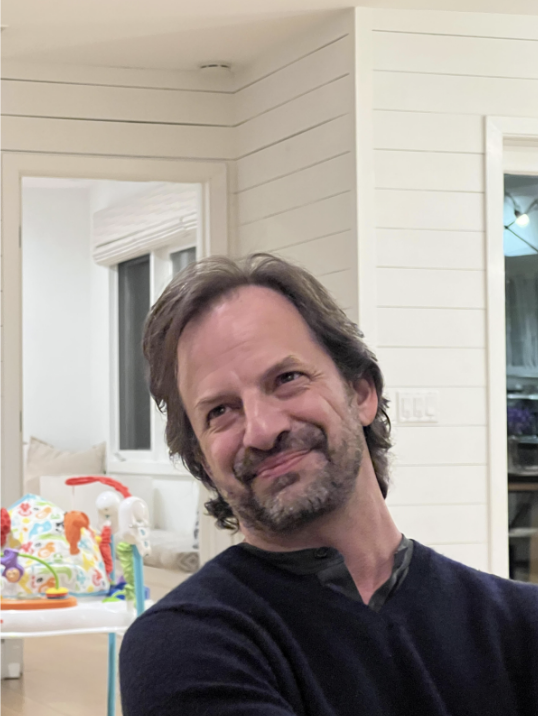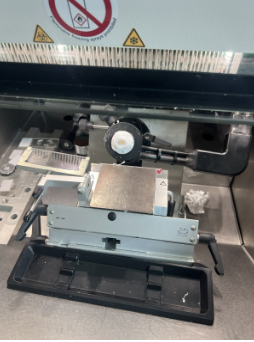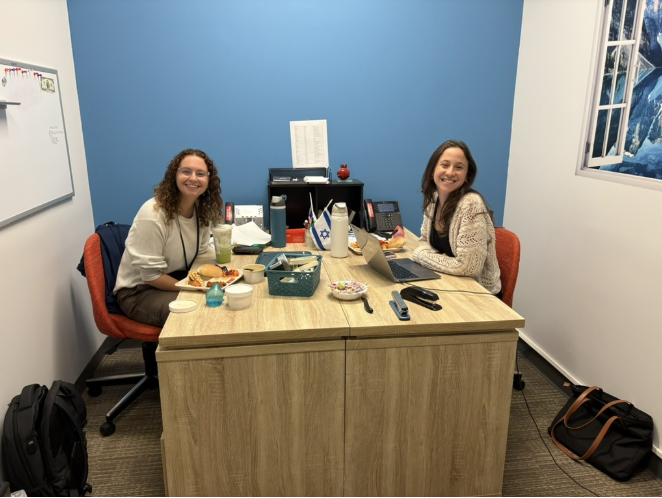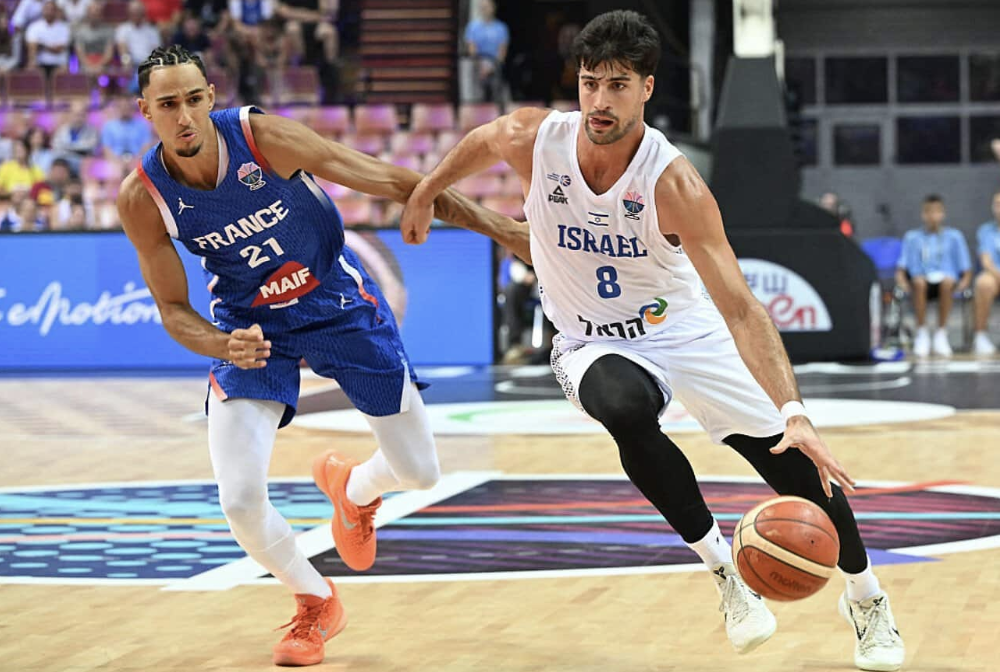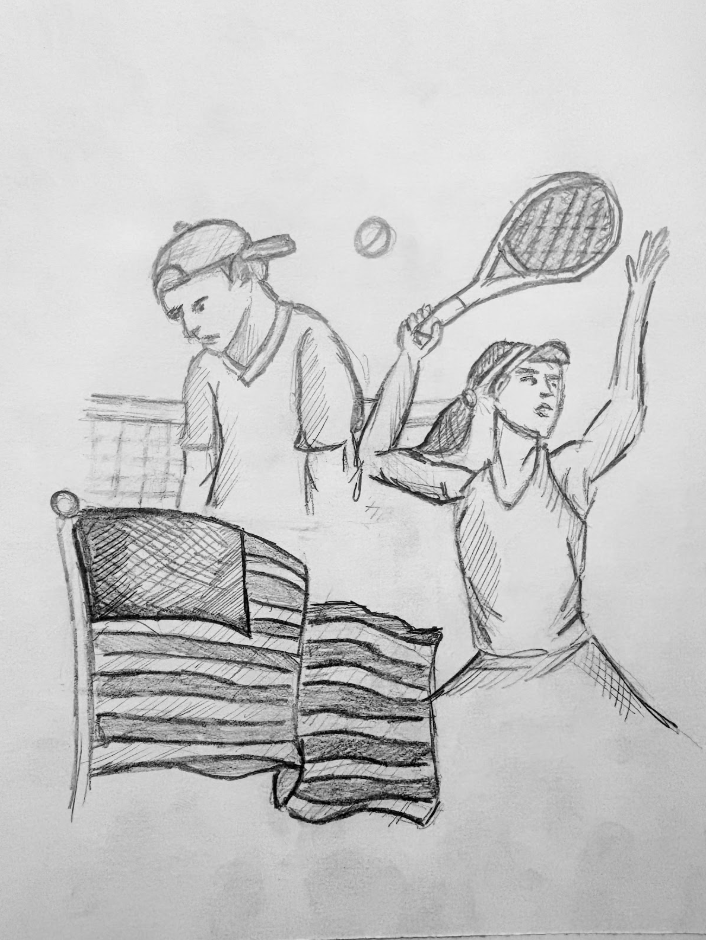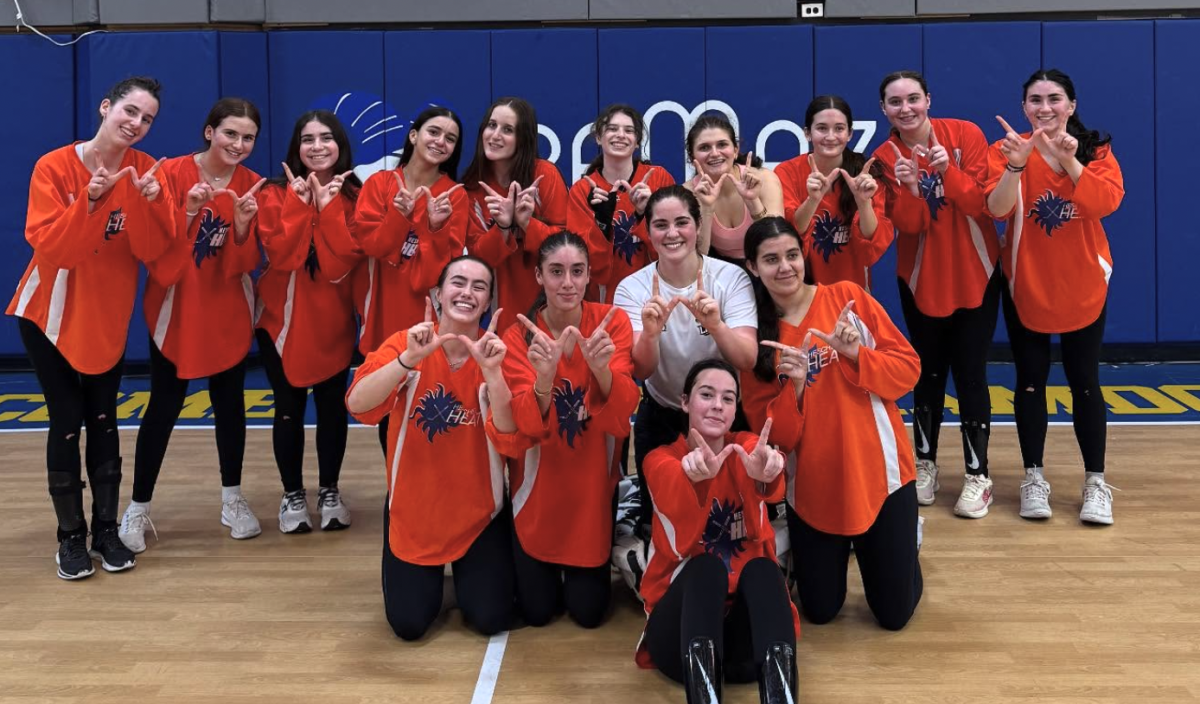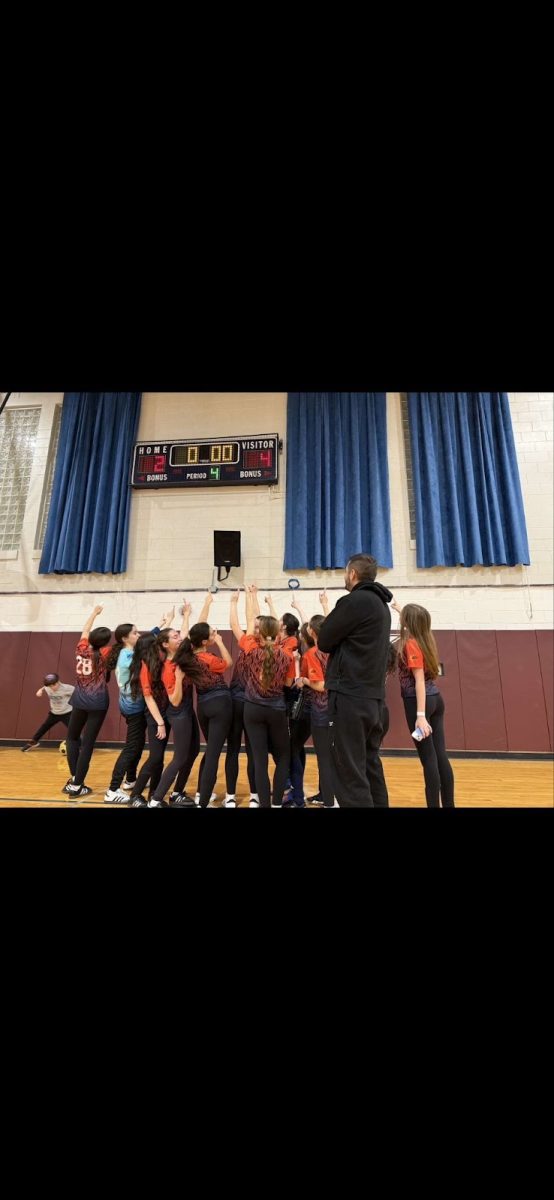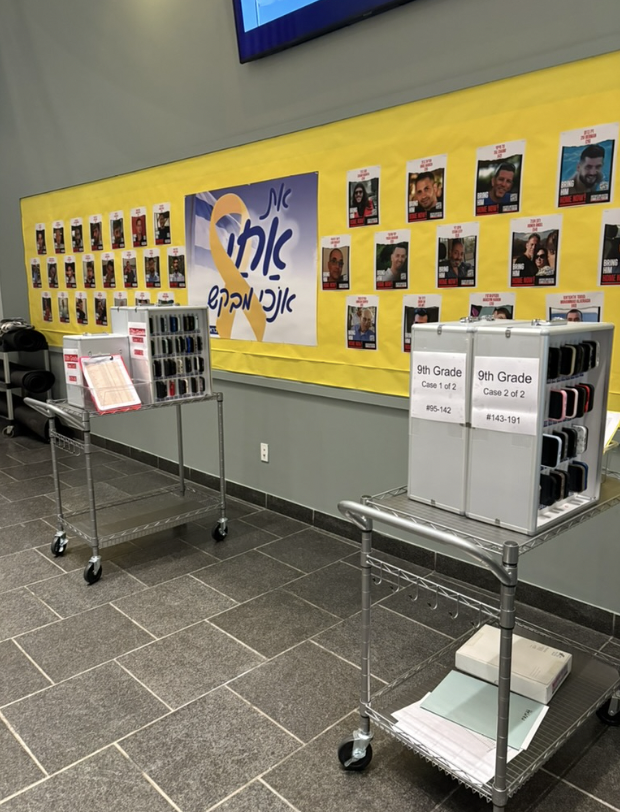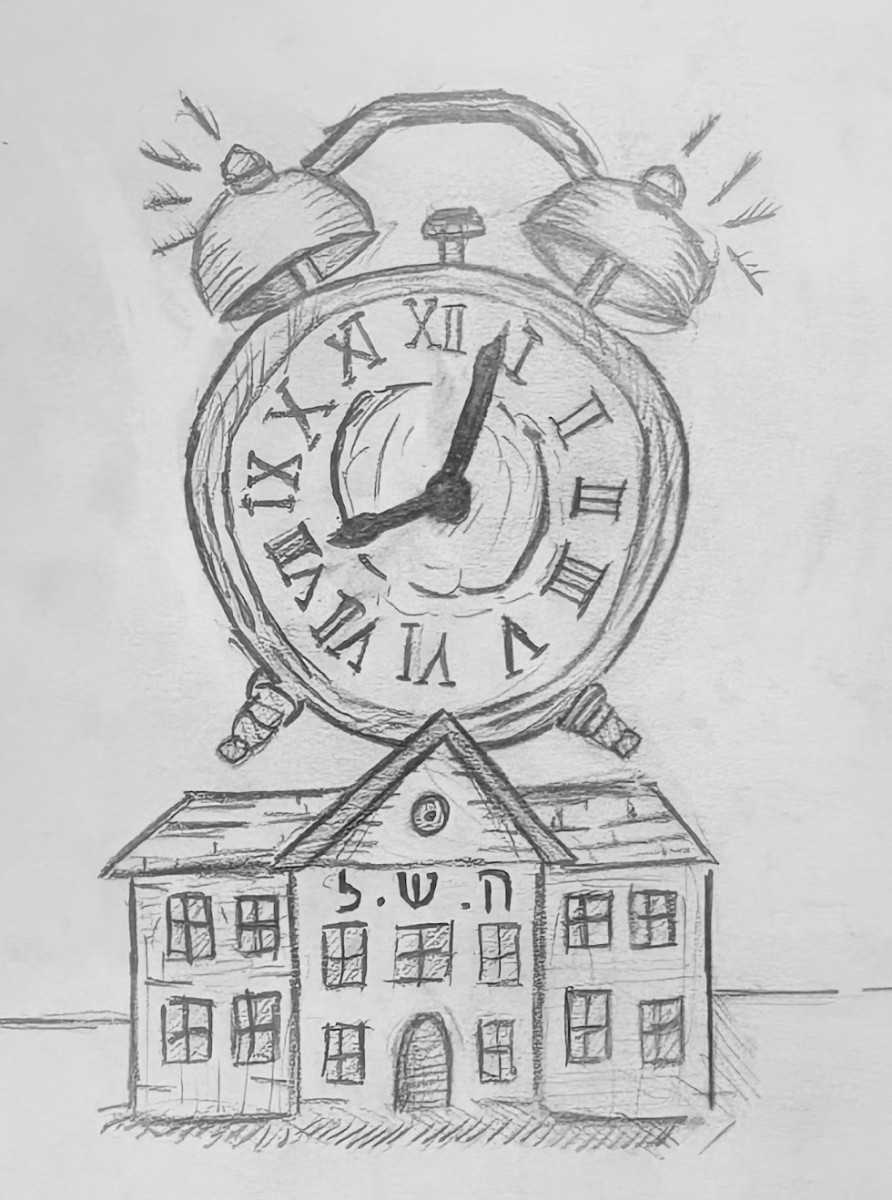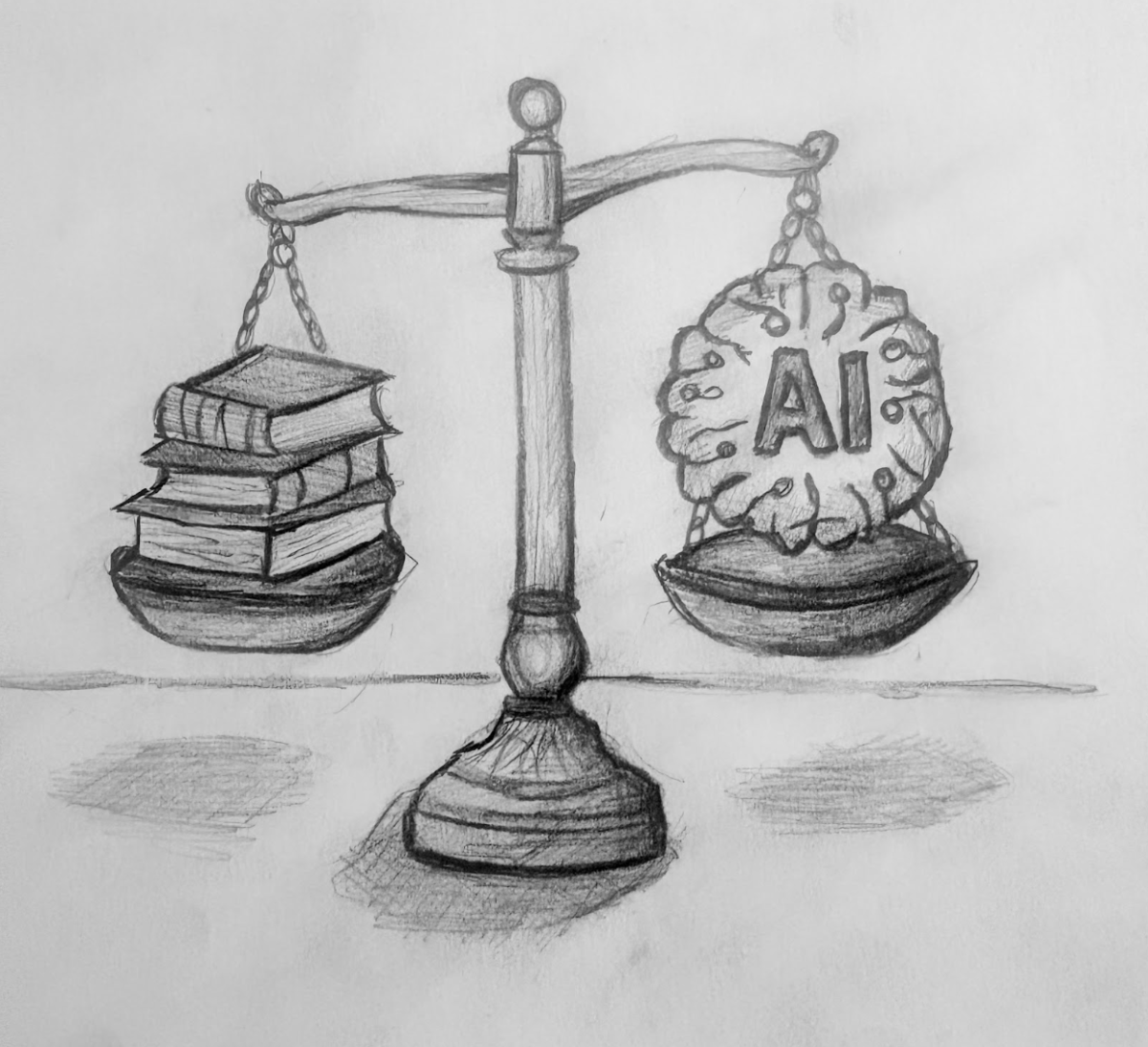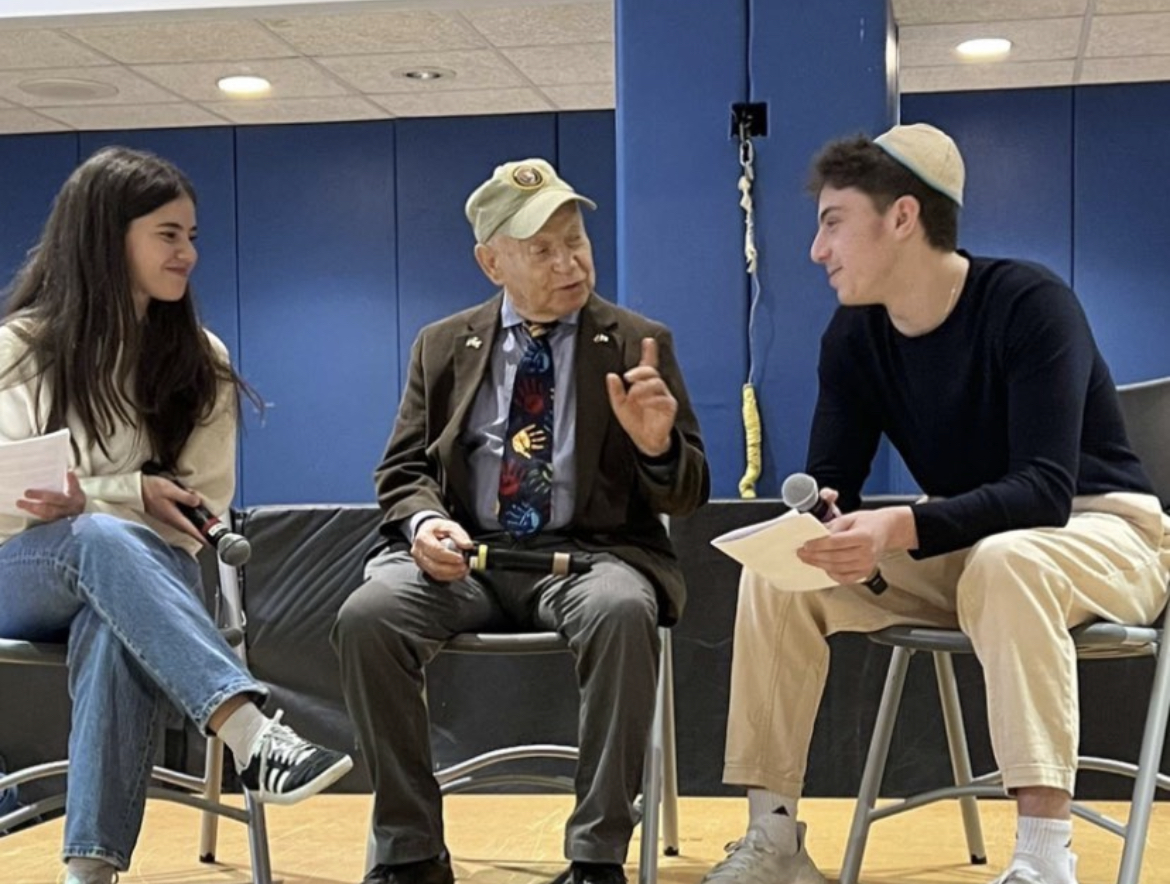On May 4, Heschel students were given the incredible opportunity to hear from Holocaust survivor Sami Steigmann, who was born on December 21, 1939 in Czernowitz, Bukovina. At the time, the town was a part of the Austro-Hungarian empire, controlled by Romania (now modern-day Ukraine).
From 1941-1944, Steigmann lived with his parents in the Mogilev-Podolsky labor camp in Transnistria. Due to his young age and, thus, inability to work, Steigmann became a victim of Nazi medical experiments. Although he is now unable to recall his experiences in those years, every day he suffers from the side effects of the experiments. According to Steigmann, life in the camp was miserable; poor living conditions and the unbearable Russian winter inflicted much suffering on Steigmann’s family.
In the camp, Steigmann’s father exchanged his winter coat for a loaf of bread in order to feed his starving son. Ultimately, a German woman with access to the camp managed to sneak in food and save the young Sami, who was on the verge of death. After the Mogilev-Podolsky labor camp was liberated by the Red Army, Steigmann grew up in Transylvania, Romania.
In 1961, he and his family made aliyah to Israel, where Steigmann joined the Israeli Air Force. He now lives in New York and spends his time as a motivational speaker. Through public speaking, Steigmann hopes to convey that “the holocaust is not only for Jews to learn about. It is also a universal, humanitarian issue.” He notes that, “We must understand what hate can do to people, and know how to react effectively.”
Despite his traumatic experience in the Holocaust, Steigmann always maintained a positive outlook on life: “By overcoming obstacles, you become a better, kinder person. Nobody can make you a victim; the only person that can do that is you.”

